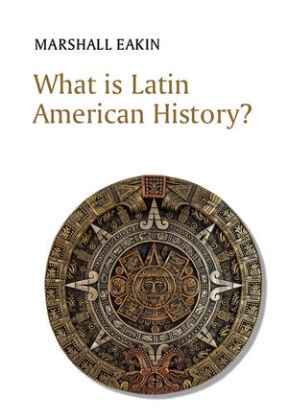Read more
What is Latin American History? surveys the development of this vibrant and dynamic field of study in North America, Latin America, and Europe. After briefly sketching the growth of the topic up to the 1960s, Marshall Eakin focuses on the past half-century, from the dominance of social history to the cultural turn. He surveys innovative work on topics including slavery, indigenous peoples, race, the environment, science, medicine, and gender, and ends with a discussion of the emergence of the concepts of borderlands, the Atlantic world, and transnational history - that both enrich and challenge the very idea of Latin America.
This concise volume offers the first broad overview of Latin American history and historiography for students, scholars, and the general reader, outlining the key social, cultural, and political forces that have shaped both Latin America and its study.
List of contents
Acknowledgements
Introduction
1: What Is Latin America?
2: The Pioneering Generations
3: The Economic and Quantitative Turns
4: The Social Turn
5: Cultural and Other Turns
6: Beyond Latin American History
Epilogue: The Future of Latin American History
Further Reading
Notes
About the author
Marshall Eakin is Professor of History at Vanderbilt University.
Summary
What is Latin American History? surveys the development of this vibrant and dynamic field of study in North America, Latin America, and Europe. After briefly sketching the growth of the topic up to the 1960s, Marshall Eakin focuses on the past half-century, from the dominance of social history to the cultural turn. He surveys innovative work on topics including slavery, indigenous peoples, race, the environment, science, medicine, and gender, and ends with a discussion of the emergence of the concepts of borderlands, the Atlantic world, and transnational history - that both enrich and challenge the very idea of Latin America.
This concise volume offers the first broad overview of Latin American history and historiography for students, scholars, and the general reader, outlining the key social, cultural, and political forces that have shaped both Latin America and its study.

